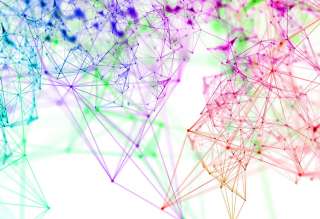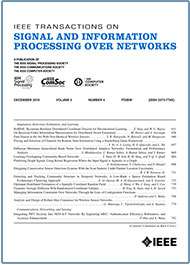Improved Interval Estimation Method for Cyber-Physical Systems Under Stealthy Deception Attacksterpretable Deep Multi-Modal Hashing for Large-Scale Multimedia Retrieval
Top Reasons to Join SPS Today!
1. IEEE Signal Processing Magazine
2. Signal Processing Digital Library*
3. Inside Signal Processing Newsletter
4. SPS Resource Center
5. Career advancement & recognition
6. Discounts on conferences and publications
7. Professional networking
8. Communities for students, young professionals, and women
9. Volunteer opportunities
10. Coming soon! PDH/CEU credits
Click here to learn more.
Improved Interval Estimation Method for Cyber-Physical Systems Under Stealthy Deception Attacksterpretable Deep Multi-Modal Hashing for Large-Scale Multimedia Retrieval
This paper investigates the problem of interval estimation for cyber-physical systems subject to stealthy deception attacks. The cyber-physical system is supposed to be compromised by malicious attackers and on the basis of that, a stealthy attack strategy is formulated. Moreover, the stealthiness of the attack strategy against
A cyber-physical system (CPS) is a synthesis of physical process, efficient computation, communication and effective control [1]. Structurally, a CPS system, which is depicted in Fig. 1, consists of perception layer, networking layer and control layer [2]. CPSs are widely applied in power grid, health-care, industrial manufacturing and so on.
However, security vulnerabilities are intrinsic to the cyber parts of CPSs. The malicious adversaries are able to formulate various attack strategies by compromising CPSs’ availability, confidentiality or integrity [3]–[4][5][6]. Roughly speaking, cyber attacks in the literature can be divided into three categories, namely, Denial of service (Dos) attacks, Replay attacks and Deception attacks [7]. The most common attacks seen in the literature are the Dos attacks. Cyber attacks degrade system performances or, worse, cause enormous economic losses and even may put people’s lives in danger. Hence, attack detection has drawn great attention in the works [8]–[9][10] herein. From the system-theoretic and graph-theoretic perspectives, the authors of [8] characterized undetectable cyber attacks and designed centralized and distributed monitors. [9] focused on the research of detection and mitigation of data injection attacks in gossip algorithm and proposed two decentralized strategies to detect attackers. The aforementioned works considered the case where the plant is compromised by a single kind of attacks, however, as the adversaries continually optimize their attack strategies, the defenders must prepare themselves for more complicated and serious situation, including combinations of different attack types. Concerning that the physical layer and cyber layer are simultaneously compromised by false data injection attacks and jamming attacks, Y. Guan et al. [10] constructed resilient attack detection estimators to accomplish secure estimation and attack detection.
SPS on Twitter
- DEADLINE EXTENDED: The 2023 IEEE International Workshop on Machine Learning for Signal Processing is now accepting… https://t.co/NLH2u19a3y
- ONE MONTH OUT! We are celebrating the inaugural SPS Day on 2 June, honoring the date the Society was established in… https://t.co/V6Z3wKGK1O
- The new SPS Scholarship Program welcomes applications from students interested in pursuing signal processing educat… https://t.co/0aYPMDSWDj
- CALL FOR PAPERS: The IEEE Journal of Selected Topics in Signal Processing is now seeking submissions for a Special… https://t.co/NPCGrSjQbh
- Test your knowledge of signal processing history with our April trivia! Our 75th anniversary celebration continues:… https://t.co/4xal7voFER












